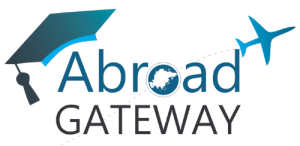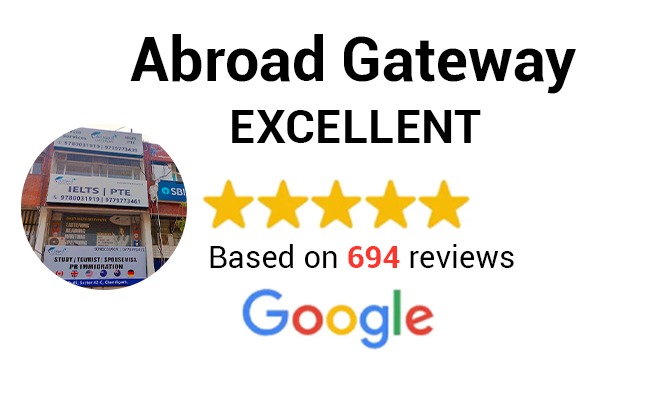Immigration, Refugees and Citizenship Canada has announced new immigration changes for 2025–2027 that will affect visitors, temporary residents, and foreign nationals. These proposed updates to the Immigration and Refugee Protection Regulations (IRPR) aim to provide clarity on when immigration officers can question individuals and require them to comply with examination procedures under the Immigration and Refugee Protection Act (IRPA).
What are the Main Changes?
Under the new rules, anyone with Canadian immigration documents, such as Visitor Visas, Study Permits, Work Permits, or an eTA, must provide honest information. Officers may also require foreign nationals to attend an interview to confirm details.
- Obligation to provide important information: Immigration officers will ask questions, and it will be the duty of applicants to answer honestly. If they give wrong information, it may lead to serious consequences, including a five-year ban from entering Canada under Section 40 of the IRPA.
- In-person or online interviews: Officers may ask for an interview to check the information or confirm the reason for your visit. This can happen during the application process or even after the applicants are already in Canada.
- Defined triggers for examination: The regulations will outline specific circumstances, such as discrepancies in travel history, infrequent financial transactions, or modifications to status, that may lead to an examination.
Which Groups will be Affected?
These changes will be applied to:
- Current document holders: This group includes people who already have a student visa, work permit, or visitor visa in Canada. When they try to extend their stay or re-enter Canada after travelling abroad, they may face more detailed checks. Authorities will likely scrutinise their documents and travel history more carefully.
- Applicants: Individuals who have applied for a visa but are still awaiting a decision may undergo more thorough verification. Authorities could take additional steps to confirm their background, purpose of travel, or supporting financial documents.
- Individuals planning to visit: Anyone planning to apply for a new visa starting in 2025 should expect stricter examination procedures. This could include interviews, more questions at the border, or extra documentation requirements.
- Visa-exempt travellers: Even people from countries that normally do not need a visa, like the U.S. or U.K., may face tougher questioning at Canadian borders. Customs officers might ask more questions about their travel plans, finances, or purpose of visit to Canada.
All travellers and visa holders, whether existing, applying, or from visa-exempt countries, may experience increased scrutiny and checks under the new changed rules.
Reasons Why these Changes are Implemented
- Due to some incidents in 2024, such as the Canada Border Services Agency (CBSA) refusing entry to travellers from India and Nigeria, even with valid visas, highlighted the importance of stronger regulations.
- Increasing cases of fraudulent documents, student visa scams, and overstays have further forced IRCC to strengthen its screening practices.
Guidance for Adjusting to the New Immigration Rules
- Be honest and transparent: It is important not to guess or give unclear answers. If the reason for travel has changed since the time of the process, applicants should explain it clearly and honestly. Any kind of misrepresentation can lead to the application being refused or a ban on entering the country.
- Maintain updated documentation: For students, it is crucial to carry proof of enrollment, tuition payment receipts, and their Statement of Purpose (SOP). Workers need to keep employment contracts, recent salary slips, and reference letters from employers. And for visitors, it is essential to have return flight tickets, accommodation details, and financial proof to support their stay.
- Well-prepared for interviews: Applicants need to prepare for potential interviews by practising common questions like, “What is the reason for your visit to Canada?” or “How will you support yourself financially?” or “When will you return? “Make sure that the answers are consistent with the details provided in the application.
- Stay updated and informed: Keep yourself up to date by regularly following the IRCC website and the Canada Gazette. Remain aware and attentive that policy consultations are expected to take place in late 2025 or early 2026, with new rules likely to be implemented between 2026 and 2027.
- Follow all instructions at the port of entry: One of the most essential steps is to carry all necessary documents when arriving in Canada, and consider using CBSA’s Advance Declaration tool to expedite the entry process.
Potential Impact on Businesses and Tourism
Although the IRCC says that Canadian businesses and trade will not face direct disruptions, the introduction of longer processing times and more stringent procedures could indirectly impact certain sectors, particularly tourism.
In 2024, Canada reportedly lost around CAD 1.2 billion in tourism revenue due to visa delays, highlighting the economic significance of efficient immigration processing.
Contrariwise, these checks aim to strengthen the consistency of the immigration system, making sure that applications are thoroughly reviewed and reducing instances of misrepresentation. In the long run, this is expected to build greater public trust in Canada’s immigration framework, making it more reliable and secure.
Abroad Gateway: Your Trusted Partner for a Successful Life in Canada
Worried about how Canada’s new immigration changes might affect your travel or settlement plans? Don’t stress — Abroad Gateway provides expert guidance and professional support to help you navigate the process smoothly and with confidence.
- Permanent Residency Applications: We guide applicants through every step of applying for Permanent Residency (PR) in Canada. From explaining Express Entry — a point-based system for skilled workers — to exploring Provincial Nominee Programs (PNPs) that match specific regional labour market needs, our goal is to help you choose the right pathway and maximise your chances of approval.
- Study Permits: Planning to study in Canada? We help you identify the most suitable permit options and ensure a clear roadmap to transition from a temporary status to Permanent Residency. This way, your education in Canada contributes directly to your long-term career and settlement goals.
- Family Sponsorships: Reuniting families is at the heart of our services. We assist Canadian citizens and PR holders in sponsoring their spouses, children, or parents, ensuring they join them in Canada legally and securely. Our support helps you achieve family unity and long-term stability.
- Tourist or Visitor Visa: Whether you’re planning a short-term trip, visiting family, or exploring Canada as a potential place to settle, we assist with Visitor Visa applications.
Unlike uncertain paths such as asylum claims, we focus on safe, legal, and reliable immigration options that can later support a pathway to Permanent Residency. This approach ensures peace of mind, stability, and opportunities for future growth.
At Abroad Gateway, we simplify Canada’s complex immigration system for you. From eligibility assessment and document preparation to final submission, our team provides personalised assistance at every step. Get in touch for a free consultation today!






